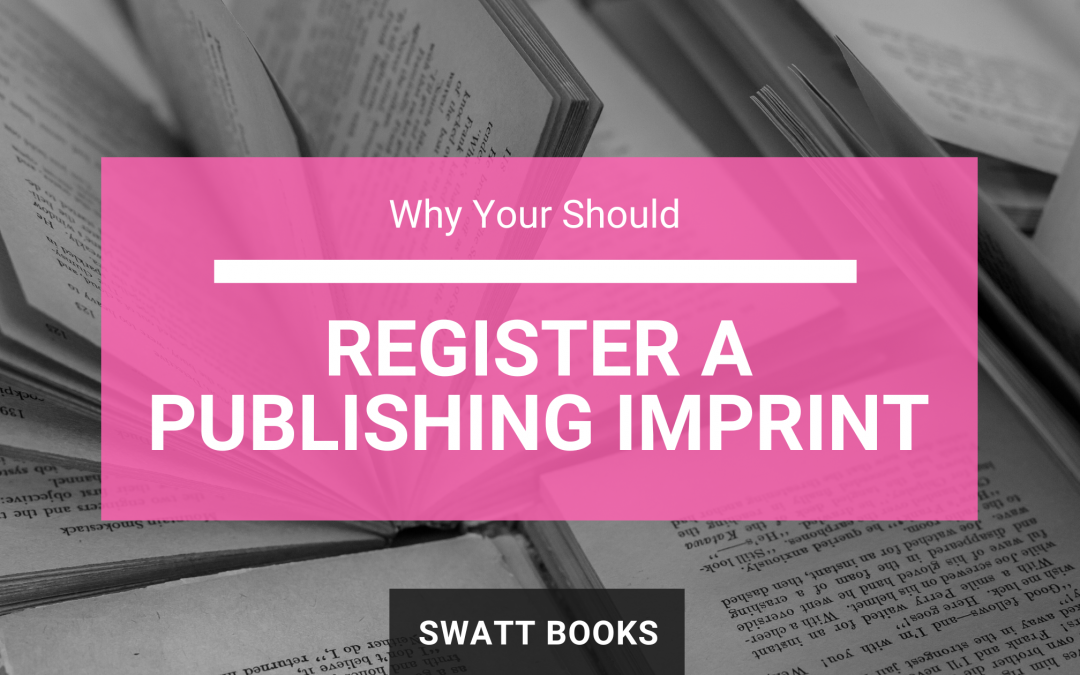In the ever-evolving world of business, standing out as an authority is more crucial than ever. As a business author, your book is not just a product – it’s a powerful extension of your brand. But have you ever considered how establishing your own publishing imprint can take your author journey to the next level?
Imagine having complete control over your creative vision, higher profit margins, and enhanced credibility. Picture your book enjoying broader distribution, with a consistent and professional brand that resonates with your audience. These aren’t just dreams; they’re achievable realities when you register a publishing imprint.
In this article, we’ll explore why savvy business authors are making the strategic decision to create their own publishing imprints. From financial perks to marketing advantages, we’ll uncover the myriad benefits that can revolutionise your publishing experience and set you apart as a go-to expert in your industry.
Ready to discover how you can elevate your author brand and maximise your book’s impact? Let’s look at the 10 reasons why you should register your own publishing imprint.
1: Enhanced Professional Image
Taking the time to register a publishing imprint adds a layer of professionalism and credibility to every book you publish. It shows that you are serious about your work, increasing the likelihood of your book being taken seriously by readers, bookstores, and media outlets.
Successful business authors who have benefited from registering their own publishing imprints include Seth Godin, Guy Kawasaki, Tim Ferriss, Michael Hyatt, Ryan Holiday, Chris Guillebeau, and Marie Forleo.
2: Complete Creative Control
When you register a publishing imprint, it allows you to maintain full control over the creative aspects of publishing, including cover design, interior layout, and editorial decisions. This control ensures that your book aligns perfectly with your brand and vision.
3: Intellectual Property Rights
Registering a publishing imprint helps in maintaining complete ownership of your intellectual property, giving you the flexibility to make decisions about your book, from licensing and distribution to exploring the exciting possibilities of TV, film, and merchandise adaptations.
4: Higher Profit Margins
By publishing under your own imprint, you can avoid the hefty percentages taken by traditional publishers, allowing you to retain more of the profits from your hard work. The standard practice when signing a book deal with a traditional publisher usually involves signing over the rights to your book to the publisher in exchange for an advance payment against sales. Some book deals will include the option for the author to be paid a percentage of the profit from book sales, but this is usually only 5-10%, equating to just a few pence per copy.
5: Tax Benefits
Though it is not a requirement in many publishing nations for a publishing imprint to be registered as an official business with the government, operating your publishing activities under a registered business can offer various tax benefits. Expenses relating to publishing can be written off as business expenses. These vary by country, but in the UK, they include the cost of printing books, professional services such as editors, designers, and typesetters, as well as the purchase of ISBN numbers.
6: Consistent Branding
When you register a publishing imprint, it allows you to establish a consistent identity across all of your publications. This consistency helps in building a recognisable and trusted brand with your readers and potential clients. Brand recognition is key in converting readers to clients as it allows them to automatically connect your book with other marketing activities you do, prompting them to go down a content rabbit hole to learn as much about you as possible before making a purchase.
7: Enhanced Marketing Opportunities
Having a publishing imprint opens up new marketing avenues for you and your book. It is easier to pitch to media, organise book tours, and negotiate partnerships when you have an established imprint. Though the perception of self-publishing has dramatically improved in recent years, there are still areas of the publishing industry where being published under a name other than the author’s own name will open doors otherwise closed to you.
8: Broader Distribution Channels
Registering a publishing imprint can give you access to a wider range of distribution channels that may not be available to authors who are simply publishing under their own name. Owning your own publishing imprint affords you the right to purchase ISBN numbers instead of relying on free ISBNs issued by Amazon that restrict your distribution to the Amazon network only. Having an independent ISBN allows you to list your book with any distribution channel you wish, extending its reach exponentially.
9: ISBNs and Cataloguing
Owning your own imprint allows you to purchase and assign ISBNs, which is essential for the proper cataloguing and distribution of your books. I have discussed the importance of ISBNs and how they affect discoverability in a previous article titled “ISBN Numbers: Everything You Need to Know.”
10: Legacy and Longevity
Creating your own publishing imprint can form part of a long-term strategy to build a legacy through publishing. It can be passed on to your children or sold as a valuable business asset in the future.
Practical Steps and Resources
How you register a publishing imprint changes depending on the territory in which you live. ISBNs are regionalised, and therefore each publishing territory is assigned an ISBN agency that manages the registration and oversight of all publishing imprints within that territory. If you reside in the UK, your publishing imprint needs to be registered with Nielsen BookData. You can find information about them and how to register your imprint here. In the United States, the ISBN agency is Bowkers (https://www.myidentifiers.com). If you live outside of these territories, please refer to the International ISBN Agency where they have a list of ISBN agencies for every publishing territory (https://www.isbn-international.org/agencies).
Next Steps
In today’s competitive business landscape, your book is more than just a collection of ideas; it’s a strategic tool that can significantly boost your professional standing. Taking the initiative to register a publishing imprint offers unparalleled advantages – from complete creative control and higher profit margins to enhanced credibility and broader distribution opportunities.
By taking this step, you’re not just publishing a book; you’re creating a powerful extension of your brand that reflects your vision and expertise. The benefits are clear: a publishing imprint empowers you to maintain ownership of your intellectual property, leverage marketing opportunities, and build a consistent professional image that resonates with your audience.
Ready to take your author journey to the next level? Start by assessing your readiness to embark on this transformative path. Take our Business Book Readiness Scorecard today and discover how prepared you are to revolutionise your publishing experience and establish yourself as a key person of influence in your industry.





